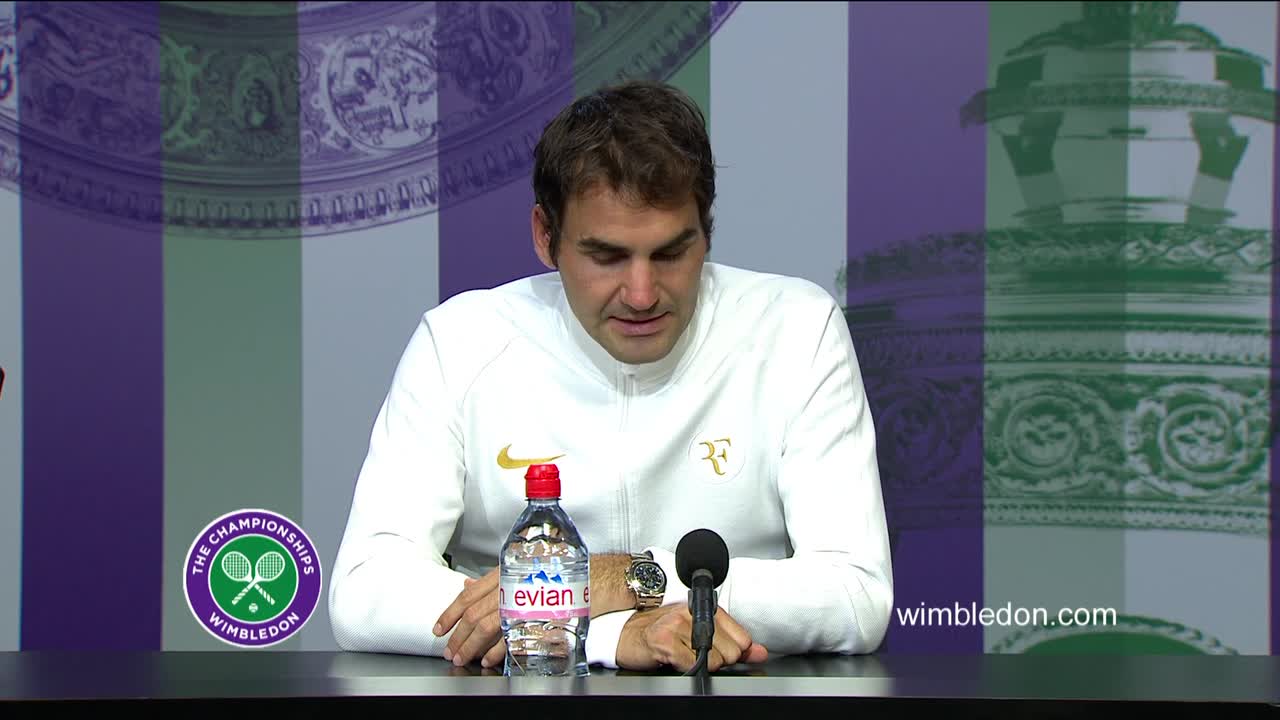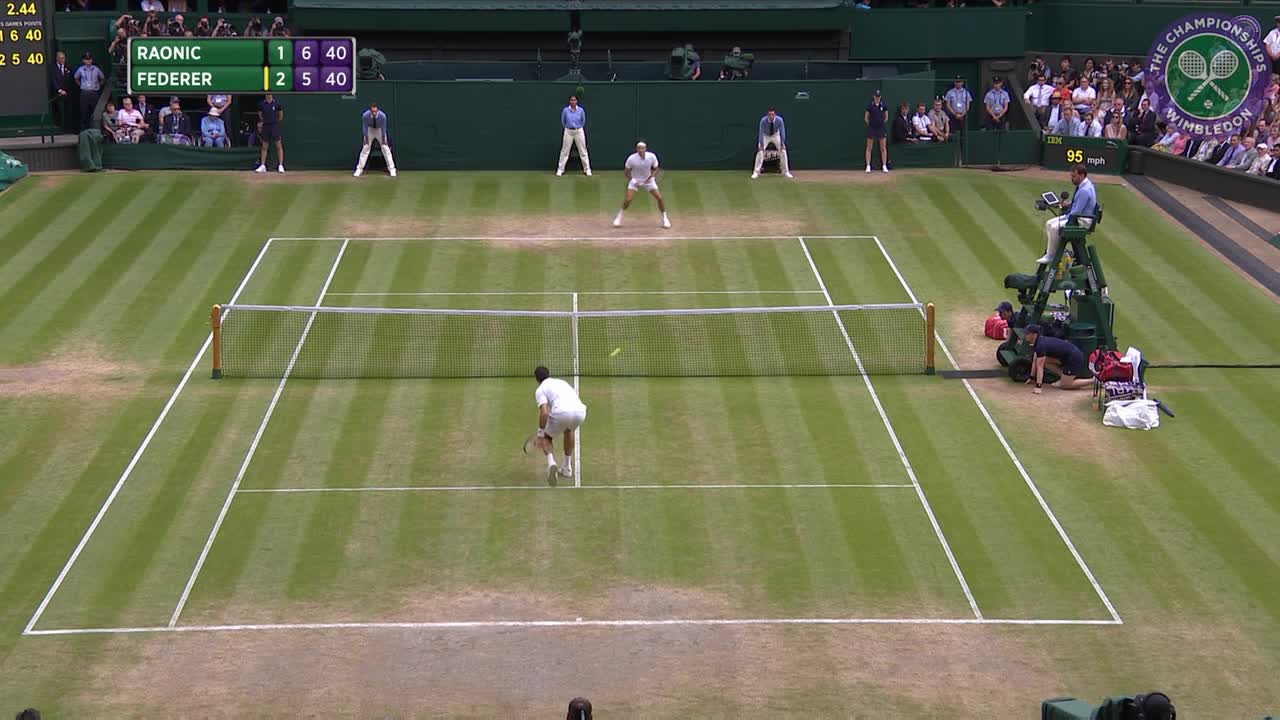They call it ironic process theory: the deliberate attempt to suppress an intrusive thought that makes it more likely to lodge in your mind’s eye.
“Just don't remind me of everything,” Roger Federer pleaded at the start of his press conference, but it was already too late.
Imagine the 17-time Grand Slam champion trying to forget the three break points that came and went in the fourth set against No.6 seed Milos Raonic, or the two double faults when serving to reach a tie-break that opened the door for the Canadian to seize the initiative and take the match into a deciding set.
Try as he might, Federer cannot wish away the memory of those missed chances, reset the play and give it another go. It’s that very aspect of the sport that make his previously unblemished Wimbledon semi-final record all the more astounding. Eleven appearances, 10 straight victories – and now, his solitary second-Friday defeat.
“This one clearly hurts because I felt I could have had it,” said Federer, the seven-time former champion, rueing the 11th final that got away. “So close. It was really so, so close. It clearly hurts.


“Something went wrong. I don't know – I can't believe I served a double fault twice. Unexplainable for me really. Very sad about that, and angry with myself because never should I allow him to get out of that set that easily.
“I mean, he deserved it. He earned it at the end. But I helped him so much to get back into that game. I would like to see a breaker because I was the better player for the set. Then, you know, I know he's great in breakers. It was always going to be tough. But I would have liked to see him scramble more than that.”
Mentally, this one will be hard to shake off; physically, the after-effects remain to be seen. The Swiss was every bit as shocked by his mid court fall in the fifth set as Raonic, the officials, and the 15,000 packed into Centre Court.
“I just hope with the slip I had in the fifth, I'm going to be fine tomorrow and beyond,”Just I hope I didn't hurt myself. Then, is it a three‑day thing, is it a 24‑hour thing or is it more? I don't know at this point. I hope it's not so bad. I walked it off. I was able to finish.
“But I don't slip a lot. I don't ever fall down. It was a different fall for me than I've ever had. With the body that's been, you know, playing up this year, I just hope I'm going to be fine. I believe I am, but I'll know more tomorrow when I wake up.”
There was, at times, a sense of the sport coming full circle on Federer. It was at Wimbledon, after all, that the promise so many had seen in him shone through in the fourth-round victory over Pete Sampras in 2001, his fellow seven-time champion railing against the fading of his powers.
That Raonic, who idolised Sampras and now awaits his first Grand Slam final, should be the player to subject this most painful of defeats on Federer feels less like a changing of the guard than a switching of the seasons.
And yet Federer is determined to prove himself evergreen. The pain will linger, but it’s pain that lets you know you’re alive.
“At the same time I totally overachieved here,” Federer added, a philosophical take on a season beset by injuries that forced him to withdraw from the French Open, the first Grand Slam he has missed since the turn of the century. “The match against Cilic was epic. It was fun to be part of that match.”
Federer confirmed that this would not be his final Wimbledon appearance, despite the lingering looks around Centre Court after the match – a show of respect for the delayed Raonic, he insisted, leaving the arena together as the greats used to do.
“And, yes, I hope to be back on Centre Court, to be very clear for you,” the 34-year-old added.
After all, he was a handful of points away from returning on Sunday – some points he let slip, others he saw snatched from his grasp by the inspired Canadian.
“It goes both ways. I feel like I lost it and he won it for sure. He played on top of the line when he had to. He fought. He believed, like I did against Cilic. These things sometimes don't go your way.
“If he blinks the wrong time, if I connect the right way on a 130mph serve, it happens so fast that you connect well... Things change, we're doing a different press conference.”


